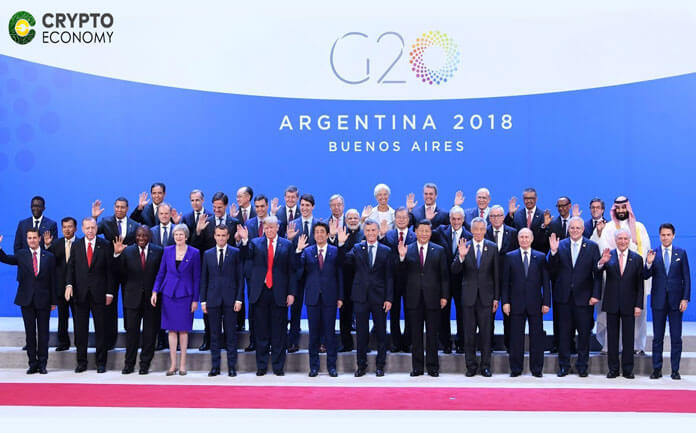The G20 Summit, an annual event that brings together leaders of 19 of the leading economies in the world and the European Union (EU) just concluded yesterday the 1st November after lasting two days.
The summit was being hosted for the first time in South America in Argentina. In attendance were all the leaders from the 19 member countries and a representative from the EU and the chairwoman of the International Monetary Fund (IMF). This year’s summit had three main agendas which were ‘The future of Work’, ‘Infrastructure for Development’ and ‘A Sustainable Food Future.’
The summit came to an end yesterday but not before the leaders signed a joint declaration to cooperate in the governance of pertinent issues affecting the world.
The plan to regulate cryptocurrencies
Of importance to the crypto community would be Section 25 which specifically addresses the regulation of cryptocurrency assets.
The section details that the G20 members agree to regulate crypto-assets according to standards stipulated by the Financial Action Task Force (FATF). Part of the section reads that,
“We will regulate crypto-assets for anti-money laundering and countering the financing of terrorism in line with FATF standards and we will consider other responses as needed.”
The declaration does not just stop there but also addresses the problem of taxation and the digitalization of the global community. Section 26 mentions the following:
“We will continue our work for a globally fair, sustainable, and modern international tax system based, in particular on tax treaties and transfer pricing rules, and welcome international cooperation to advance pro-growth tax policies.”
The section further states that ,
“We welcome the commencement of the automatic exchange of financial account information and acknowledge the strengthened criteria developed by the OECD to identify jurisdictions that have not satisfactorily implemented the tax transparency standards.”
It is not hard to project that these rules on tax reporting will be extended to crypto assets to curb tax evasion tactics by some cryptocurrency investors and traders.
Financial regulators have often accused tax evaders of using cryptocurrency to hide their tax gains and launder money through different jurisdictions. This declaration could be an attempt to regulate the cryptocurrency space by getting some of the leading economies to cooperate in coercing their citizens to voluntarily provide their financial information and enable tax authorities to fairly asses their tax obligations.
In conclusion, Section 26 also mentions that the FATF is in progress to create a better tax solution that addresses the unique challenges that have been introduced by the digitization of the economy. The section states:
“We will continue to work together to seek a consensus-based solution to address the impacts of the digitalization of the economy on the international tax system with an update in 2019 and a final report by 2020.”
We hope that all these regulations do not stop the evolution and development of crypto-space and blockchain technology.











